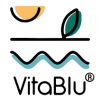Olive oil is a staple in global gastronomy and a cornerstone of the Mediterranean diet. However, what many consumers don’t know is that a significant portion of olive oils sold as “pure” and “organic” are actually adulterated. Many brands mix high-quality olive oil with cheaper alternatives, use artificial coloring, and misleadingly label their products.
In this article, we’ll expose how olive oil fraud works, how organized crime is involved, and why Nuoro, Sardinia’s olive oil stands out as a truly authentic and superior-quality product.
Olive Oil Adulteration: A Silent Fraud
Due to its high market value, olive oil is frequently targeted by food fraud. Some of the most common scams include:
- Mixing with lower-quality oils: Olive oil is often diluted with cheaper oils like sunflower, soybean, corn, or even palm oil to increase volume and cut costs.
- Blending with refined olive oils: Lower-quality oils, such as pomace oil, undergo chemical treatments and are then mixed with virgin olive oil.
- Artificial colorants and flavoring: Industrial chlorophyll or beta-carotene is added to mimic the color of extra virgin olive oil, and synthetic flavorings are used to replicate its aroma.
- Fake labeling: Oils from other regions are falsely labeled as premium Mediterranean oils (e.g., Italian or Spanish) to justify higher prices.
These fraudulent practices not only deceive consumers but can also pose health risks, especially for individuals with allergies or sensitivities to certain vegetable oils.
Organized Crime’s Role in Olive Oil Fraud
Olive oil fraud isn’t just about dishonest companies—it often involves organized crime.
In Italy, the “Agromafia” controls a large part of the fraudulent olive oil market. Investigations have revealed that criminal organizations repackage and relabel low-quality oils as “Italian extra virgin”, selling them at premium prices in international markets.
Why do they do it? Because fake olive oil can be as profitable as drug trafficking—but with far lower risks. Authorities in Europe and America have confiscated tons of adulterated olive oil in major police operations, exposing large-scale scams.
If an olive oil’s price seems suspiciously low or its origin is unclear, it’s probably not the real deal.
Nuoro, Sardinia’s Olive Oil: Guaranteed Authenticity
Unlike questionable olive oils, the olive oil from Nuoro, Sardinia, is a truly pure and certified product. Here’s why:
- Produced in a Blue Zone: Nuoro is part of one of the world’s longevity hotspots, where diet and lifestyle contribute to exceptional health.
- Native olive varieties: Olives like Nera di Oliena and Bosana create an oil with an exceptional sensory profile—without the need for blends or additives.
- Quality certifications: Our oil carries a Protected Designation of Origin (PDO) certification, guaranteeing its purity and authenticity.
When you choose Nuoro olive oil, you’re getting a product that is 100% natural and unaltered.
How to Identify a Truly Pure Olive Oil
To ensure you’re buying authentic olive oil, follow these simple tips:
✅ Look for official certifications such as PDO, PGI, COOC, or NAOOA.
✅ Check the harvest date, not just the expiration date. High-quality olive oil is best consumed within its first year.
✅ Beware of ultra-cheap prices: Authentic extra virgin olive oil has a cost that reflects its quality.
✅ Buy from trusted producers: Make sure you know where the oil comes from and how it was made.
By following these guidelines, you can avoid fraud and enjoy a real, healthy, high-quality olive oil.
Conclusion
Olive oil fraud is a serious global issue, but as consumers, we have the power to choose authenticity and quality. The olive oil from Nuoro, Sardinia, is one of the best options on the market—a pure product with PDO certification, from one of the world’s healthiest regions.Don’t fall for fake labels. Make sure the olive oil in your kitchen is genuinely extra virgin. Your health and taste buds will thank you.

